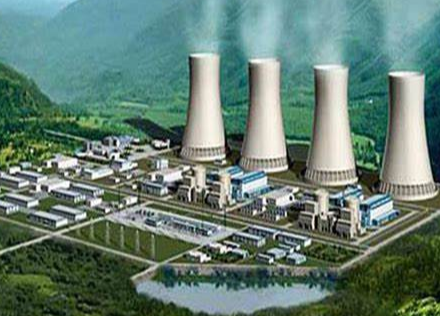Current situation and problems of nuclear power development in our country
In September 2011, four people were injured and one person died in an explosion at a nuclear waste disposal center attached to the Marcoule nuclear power plant in France. "Nuclear accidents have occurred in countries with such advanced nuclear technology as Japan and France, which shows that it is impossible to take all risks into account in the design and construction of nuclear power plants."

2. Some countries have announced the abandonment or phase-out of nuclear power
After decades of practice, it is an inevitable trend to ban or restrict nuclear power in the name of the state after discovering the huge hidden dangers that cannot be eliminated. In 2002, Germany (which generates 31% of its electricity from nuclear power) renounced nuclear power through the Nuclear Energy Prohibition Act. In May 2011, the Swiss government (which generates 40% of its electricity from nuclear) announced that it would no longer rebuild or replace nuclear power plants. After the Fukushima accident, Japan renounced nuclear power. Sweden (which generates 39% of its electricity from nuclear power) decided in a referendum as early as 1980 that it would not be allowed to produce electricity for the next 20 years. Phase out nuclear power generation within 30 years. France has cut its nuclear energy programme in half. Nuclear power plants in the United States are also facing a wave of closures, "although the industry is still vigorously agitating for a nuclear Renaissance, but the current situation is still not optimistic." [24] As a result of the Fukushima nuclear accident, anti-nuclear power countries such as Austria have strengthened their views. Recently, Italy's plan to restart nuclear power was rejected in a referendum.
China's nuclear power "great leap forward" plan is largely led by nuclear power groups and individuals. There are two fundamental reasons: one is driven by interests, and the other is political overreach. For the sake of commercial interests, these nuclear energy companies have ignored the safety of life and property of the country, society and people, induced the government to develop nuclear power on a large scale, exaggerated the advantages of nuclear power, and minimized or even concealed the dangers of nuclear power. As scholar Wu Hui has said, whether nuclear power can be developed or not should be decided by the nature of nuclear power itself, not by nuclear companies - they say "safe" is safe. The goal of nuclear power companies is market and profit, unlike military industries such as nuclear missiles, nuclear submarines or nuclear aircraft carriers, which are for the benefit of national defense. We support the development of the nuclear military industry and the establishment of a strong national defense, but resolutely oppose the pursuit of commercial interests in the name of the state and the usurpation of nature for commercial interests.
- ABB
- General Electric
- EMERSON
- Honeywell
- HIMA
- ALSTOM
- Rolls-Royce
- MOTOROLA
- Rockwell
- Siemens
- Woodward
- YOKOGAWA
- FOXBORO
- KOLLMORGEN
- MOOG
- KB
- YAMAHA
- BENDER
- TEKTRONIX
- Westinghouse
- AMAT
- AB
- XYCOM
- Yaskawa
- B&R
- Schneider
- Kongsberg
- NI
- WATLOW
- ProSoft
- SEW
- ADVANCED
- Reliance
- TRICONEX
- METSO
- MAN
- Advantest
- STUDER
- KONGSBERG
- DANAHER MOTION
- Bently
- Galil
- EATON
- MOLEX
- DEIF
- B&W
- ZYGO
- Aerotech
- DANFOSS
- Beijer
- Moxa
- Rexroth
- Johnson
- WAGO
- TOSHIBA
- BMCM
- SMC
- HITACHI
- HIRSCHMANN
- Application field
- XP POWER
- CTI
- TRICON
- STOBER
- Thinklogical
- Horner Automation
- Meggitt
- Fanuc
- Baldor
- SHINKAWA
- Other Brands




































































































































